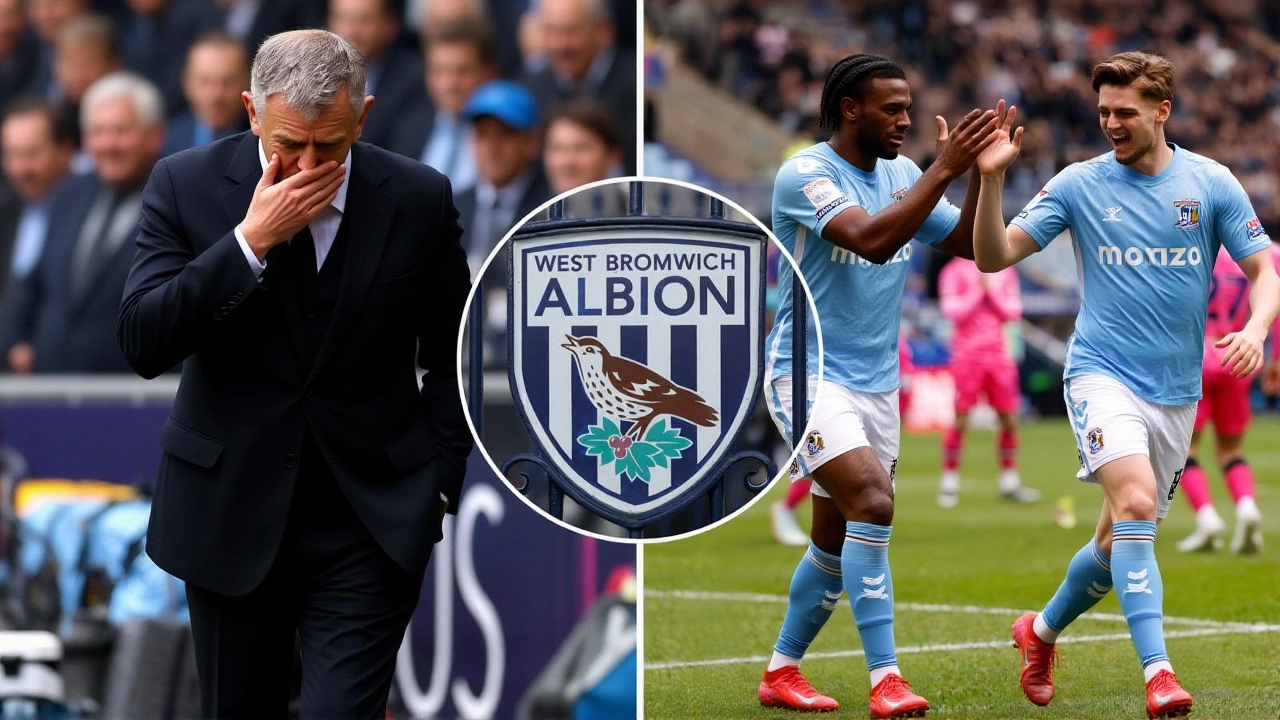When Coventry City Football Club announced £45 adult tickets for their November 22, 2025, Championship clash with West Bromwich Albion Football Club at the CBS Arena, fans didn’t just sigh—they stormed social media. Owner Doug King stood firm, telling BBC Coventry & Warwickshire: "They will have a great time." But for many supporters, the experience feels less like a matchday and more like a financial gamble.
"Optimising" Big Matches
King’s defense hinges on a phrase that’s become a lightning rod: "optimising" high-demand fixtures. According to his interview with AOL.com, the club’s five-tier pricing system—A+, A, B, C, D—isn’t about profit alone. It’s about "value." He points out that for West Bromwich fans, the trip to Coventry is a short drive, cutting transport costs. "Everybody has got their opinions," he said. "But look at concert tickets. Look at theatre. Those are through the roof. We’re not even close."
The A+ category, reserved for select fixtures, now includes the November 22 game against West Bromwich and the Boxing Day clash with Swansea City Football Club on December 26, 2025. Adult tickets for both are £45. Seniors pay £40, under-18s £35. That’s a £7 jump from last season’s £37 for the same fixture on Good Friday, April 18, 2025—a price that still drew a packed West Bromwich end despite their 2-1 loss.
Fan Backlash Across the League
It’s not just West Bromwich fans fuming. Swansea supporters are equally incensed. Their traditional Boxing Day trip to Coventry, long a festive highlight, is now priced like a Premier League showdown. "We’ve been coming here for 20 years," said one Swansea fan on Reddit. "Now it’s cheaper to fly to London than buy a ticket in Coventry."
On Twitter, hashtags like #CoventryTicketScandal and #NotMyMatchday trended for 48 hours. One user posted a side-by-side: a £45 Coventry ticket versus a £12 ticket at nearby League One side Burton Albion. The contrast was brutal. Even some Coventry City loyalists voiced unease. "We’re the league leaders," one season-ticket holder told Football League World. "But we’re not a Premier League club. This feels greedy."

A Pattern of Complaints
This isn’t the first time West Bromwich fans have raised alarms. Complaints about CBS Arena pricing stretch back at least three seasons: 2021-2022, 2022-2023, and 2023-2024. Each time, prices rose incrementally. Each time, the club insisted the hikes were "sustainable." Each time, the West Bromwich end sold out—even when the team lost. That’s the paradox: fans keep showing up, but their anger grows louder.
The Coventry City Football Club has never reversed an A+ pricing decision. And despite the backlash, there’s no sign they will. The club’s official statement, issued on November 4, 2025, simply reiterated: "We aim to provide a world-class matchday experience at a fair price." But "fair" is subjective. For many, £45 for a 90-minute game in a city where average weekly wages hover around £600 isn’t fair—it’s exclusionary.
Why This Matters Beyond Coventry
This isn’t just about one club. It’s about the slow erosion of football’s social contract. For decades, lower-league clubs were seen as community anchors—affordable, accessible, family-friendly. Now, with rising operational costs and private ownership models, pricing is becoming a tool for revenue maximization, not fan retention.
As the YouTube series The Price of Football highlighted, Coventry City has earned widespread sympathy over the years—bouncing back from near-bankruptcy, losing their stadium, playing in exile. That emotional capital is being spent fast. "They’ve had a hard time," said host Kevin Day. "But sympathy doesn’t pay the bills. And fans aren’t charity cases."
The bigger question? Who’s watching? With calls for a football regulator growing louder—especially after the collapse of several clubs and the opaque ownership of others—Coventry’s pricing could become a test case. If fans stop buying, will the club adapt? Or will they double down, betting that loyalty outweighs outrage?

What’s Next?
Coventry City’s next home game after West Bromwich is against Sheffield Wednesday on December 1, 2025—categorized as A, not A+. Tickets are £38. That’s a hint. Maybe they’re testing the waters. Or maybe they’re just saving the real shock for Boxing Day.
For now, the CBS Arena will be full on November 22. But the silence after the final whistle? That’s where the real tension will be felt.
Frequently Asked Questions
Why are Coventry City ticket prices so high compared to other Championship clubs?
Coventry City uses a five-tier pricing model, with A+ matches—like the West Bromwich and Swansea fixtures—commanding £45 for adults. Most Championship clubs cap adult tickets at £25–£35 for top fixtures. Coventry’s model is unusual for a club outside the Premier League, especially given its history of financial struggles. Their argument is that they’re "optimising" revenue from high-demand games, but critics say it alienates loyal fans and contradicts the club’s community roots.
Has Doug King ever lowered ticket prices after fan backlash?
No. Since taking ownership, Doug King has never reversed an A+ pricing decision. Even after the 2024-2025 season’s £37 adult ticket for West Bromwich drew complaints, prices rose to £45 for the 2025-2026 rematch. The club maintains that pricing is based on demand and operational costs, not fan sentiment. This consistency has led many to view the pricing strategy as deliberate, not reactive.
How does this affect lower-income families in Coventry?
For a family of four—two adults, two children—the cost of attending an A+ match now exceeds £160. In a city where median household income is £31,000 annually, that’s nearly £30 per match. Many local families have already reduced attendance, opting for home viewing or skipping games entirely. The club’s youth ticket pricing at £35 doesn’t offset the burden when combined with parking, food, and transport. Critics argue this is turning football into a luxury experience.
Why are West Bromwich and Swansea fans particularly upset?
Both clubs have historically traveled to Coventry in large numbers, often filling over 5,000 away seats. West Bromwich fans have made the trip for decades, even when the club was struggling. Swansea’s Boxing Day fixture is a cherished tradition. Now, with Coventry pricing these matches as premium events, supporters feel targeted and disrespected. Many are organizing carpooling and boycotts, with some fans vowing not to return until prices are scaled back.
Could this lead to a football regulator being created?
Possibly. The controversy has been cited by campaign groups like Fans for Democracy and the Football Supporters’ Association as evidence that self-regulation by club owners has failed. With multiple clubs facing financial instability and opaque ownership, calls for a statutory regulator are growing. Coventry’s pricing model is now being used as a case study in parliamentary discussions about fan protections and ticket pricing transparency.
What’s the long-term risk for Coventry City if fans keep protesting?
The risk isn’t just lost revenue—it’s lost identity. Coventry City built its brand on resilience and community support after years of hardship. If they’re seen as prioritizing profit over people, they risk alienating the very fans who carried them through their darkest years. A drop in season-ticket renewals, reduced attendance at non-A+ games, and negative media coverage could erode their cultural capital. In football, loyalty is currency—and Coventry is spending it fast.
